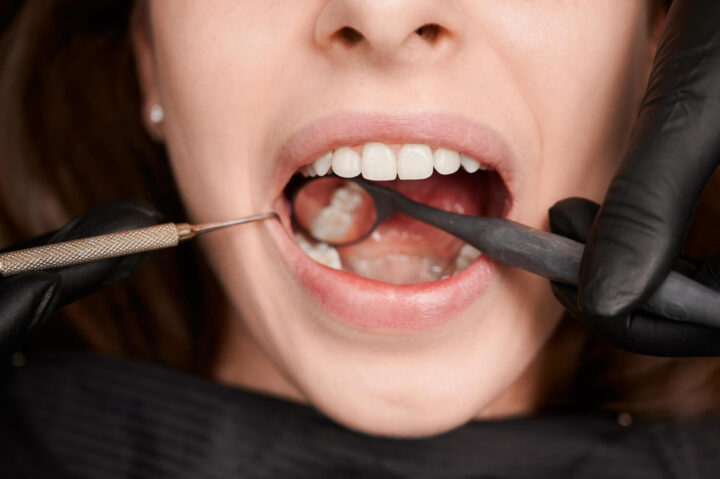Wisdom Teeth Extraction Recovery: Finding Comfort in the Process

Ever had a nagging pain in the back of your mouth? You might be familiar with those culprits: wisdom teeth. These are the third set of molars that often appear during our late teens or early twenties.
Due to evolution, our jaws have shrunk, but our number of teeth remains the same. The result? There’s not always enough room for these newbies, making their extraction a rite of passage for many.
Today, we’ll journey through the intricacies of the extraction process and more importantly, how to make the recovery cozy and comfortable.
Wisdom Teeth Extraction

Wisdom teeth extraction is more than a mere dental procedure; it’s often a necessity. Why, you ask?
For starters, these teeth can become impacted, meaning they don’t fully emerge from the gums. This can cause overcrowding and mess with the alignment of your other teeth. Plus, if left unchecked, they can lead to potential complications like cysts, infections, and decay.
The extraction itself can vary. There’s the simple extraction where the tooth is visible and can be removed similarly to any other tooth. But often, if the tooth is still under the gums and embedded in the jawbone, a surgical extraction is needed. This requires an incision and might sound a bit more daunting, but with modern dentistry, it’s a pretty streamlined process.
The Initial Recovery Period
Alright, so you’ve had the extraction. What next? The immediate aftermath (think the first 24-48 hours) is crucial. During this time, it’s natural to experience a symphony of sensations: some pain, noticeable swelling, a bit of bleeding, and maybe a challenge or two in opening your mouth wide.
But fear not! These side effects, though a tad inconvenient, are entirely normal and manageable. Your main mission? Ensuring maximum comfort.
Practical Tips for Comfort
Let’s talk pain first. Nobody wants to bear it longer than necessary, right? Over-the-counter pain relievers can be handy, but always consult with your dentist or oral surgeon about dosage and frequency. They might even prescribe something stronger, so ensure you’re taking it as directed.
Now, for the swelling – a cold compress is your best friend. Not only does it provide relief, but it also helps reduce the puffiness. As for the diet, think soft and gentle. Puddings, yogurts, mashed potatoes, and smoothies are excellent choices. And, do yourself a favor – steer clear from hard, crunchy, or spicy items that can irritate the surgical site.
Last but not least, hydration is essential, but avoid using straws. The suction can disrupt the healing process. Oh, and one more thing, while oral hygiene is crucial, be gentle. Avoid vigorous rinsing and go easy with that toothbrush.
Long-Term Recovery and Healing
Beyond the first couple of days, the road to recovery extends a bit further, often spanning several days to a few weeks. Everyone heals at their own pace, but consistency in aftercare can significantly influence how smooth and quick this period is.
The key is to religiously follow post-operative instructions from your oral surgeon. They know the drill (pun intended) and can offer the best guidance. Keep an eye out for signs of complications.
Persistent pain, unusual swelling, bad odour, or difficulty swallowing might mean it’s time to ring up your dental professional. Trust your instincts; it’s better to be safe than sorry.
Emotional and Psychological Comfort
Recovering from any medical procedure isn’t just about the physical. The emotional and psychological elements play a massive part too.
Feeling anxious or distressed? It’s okay. Many have been there, and it’s natural to feel that way. To help manage the storm of emotions, try relaxation techniques. Deep breathing exercises or meditation can work wonders.
More than anything, don’t hesitate to lean on your support system – be it friends, family, or professionals. Sometimes, a listening ear or shared experience is the best remedy.
Celebrating Milestones and Progress
Every day post-surgery is a milestone. Even the tiniest improvement is worth celebrating. I’ve heard countless tales of folks who turned their recovery periods into mini-festivities. Some treated themselves to a new movie each pain-free day, others documented their recovery journey on social media, offering advice and receiving encouragement.
No matter how you choose to mark your progress, the crucial thing is to stay patient and keep a positive spirit. Remember, healing is not a race but a journey. And every journey is filled with its own unique moments to be cherished.
FAQ

Is it necessary for everyone to have their wisdom teeth removed?
No, not everyone requires a wisdom teeth extraction. Some people have enough space in their mouth to accommodate them without issues. The necessity largely depends on the positioning of the teeth and the potential for complications.
How long does the actual extraction procedure take?
The duration of the procedure varies based on the number of teeth being removed and the complexity of each case. Generally, it can range from 30 minutes to over an hour.
Can I resume normal activities like sports or gym after the surgery?
It’s recommended to avoid strenuous activities for at least a week or as advised by your oral surgeon. Engaging in such activities too soon can lead to complications or prolonged healing time.
Will there be visible stitches after a surgical extraction?
Often, if stitches are used, they’re dissolvable and will disappear on their own within a week or so. However, in some cases, non-dissolvable stitches might be used, which will need to be removed by your oral surgeon at a follow-up appointment.
Wrapping It Up

Wisdom teeth extraction can seem like a daunting affair, from the procedure to the recovery. But with the right knowledge and mindset, it’s manageable and often smoother than anticipated.
Prioritize comfort, both physically and mentally. Stay hydrated, munch on soft foods, rest, and more importantly, let your loved ones in to support and uplift you.
The journey to recovery is as much about healing as it is about growth and understanding one’s resilience. Embrace it, celebrate the milestones, and keep looking forward.
